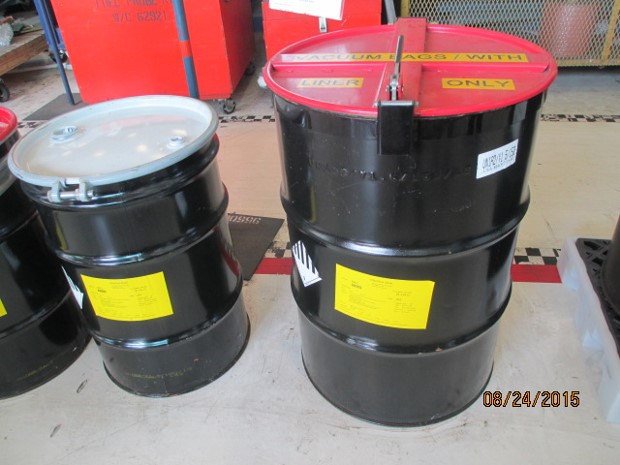Yes. USEPA allows for an extension to accumulation time limits due to the COVID-19 public health emergency.
Pursuant to Federal USEPA regulations at 40 CFR 262.16(d) for a small quantity generator of hazardous waste (SQG) and §262.17(b) for a large quantity generator (LQG), an extension to the standard on-site accumulation time limit (180 or 270 days for a SQG, 90 days for a LQG) of up to 30 days may be granted by USEPA (or your state if it has an authorized hazardous waste program). This extension may be granted if…
…hazardous wastes must remain on site for longer than 90 days (or 180 or 270 days for an SQG) due to unforeseen, temporary, and uncontrollable circumstances. An extension of up to 30 days may be granted at the discretion of the Regional Administrator on a case-by-case basis.
I believe the current COVID-19 public health emergency qualifies for this extension.
Not sure of your hazardous waste generator category? |
Also, from USEPA’s Temporary Enforcement Discretion Policy in light of COVID-19. Part I.D.4 reads:
If a facility is a generator of hazardous waste and, due to disruptions caused by the COVID-19 pandemic, is unable to transfer the waste off-site within the time periods required under RCRA to maintain its generator status, the facility should continue to properly label and store such waste and take the steps identified under Part I.A, above. If these steps are met, as an exercise of enforcement discretion, the EPA will treat such entities to be hazardous waste generators, and not treatment, storage and disposal facilities. In addition, as an exercise of enforcement discretion, the EPA will treat Very Small Quantity Generators and Small Quantity Generators as retaining that status, even if the amount of hazardous waste stored on site exceeds a regulatory volume threshold due to the generator’s inability to arrange for shipping of hazardous waste off of the generator’s site due to the COVID-19 pandemic.
Note1: The reference to Part I.A in the above quotation is to the General Conditions of the enforcement discretion which pretty much says:
- Generators should make every effort to comply with their environmental compliance obligations, and;
- If compliance is not reasonably practical, generators should act responsibly to minimize the effects and duration of the non-compliance, return to compliance ASAP, and document everything.
Note2: The reference to amount of hazardous waste accumulated by a VSQG or SQG in the above quotation will be addressed in a separate article.
USEPA’s temporary policy clearly allows for an enforcement discretion if an SQG or LQG exceeds their on-site accumulation time limits as long as other conditions of the policy are met.
The language on USEPA’s website of FAQ’s related to hazardous waste generators and COVID-19 are less clear than the above. But there also it states that generators may request an extension to their on-site accumulation time limits from USEPA or their state as is allowed by §262.16(d) and §262.17(b).
Daniels Training Services, Inc. 815.821.1550 |
So, what’s a hazardous waste generator to do?
- Contact your regional USEPA (if you operate in a state lacking RCRA authorization) or your state environmental agency (if your state has RCRA authorization) to request an extension to the on-site accumulation time limit. Read: RCRA State Authorization
- Comply with all other Federal and state regulations applicable to your hazardous waste to the best of your ability during the COVID-19 public health emergency.
- Non-compliance with other regulatory requirements (e.g., weekly inspections) due to the COVID-19 public health emergency must be addressed separately.
- Document your activities and correspondence and maintain as a record.
- Return to compliance as soon as you are able.

